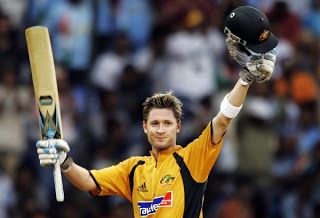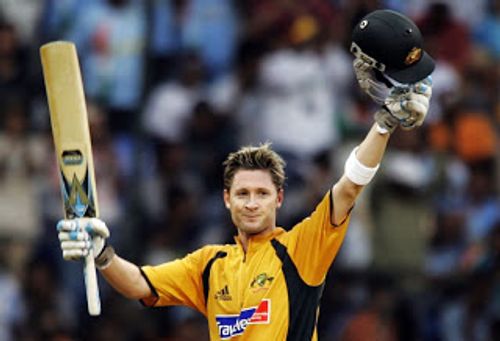
Cricket Australia: Captaincy, the Michael Clarke way

Being captain of the Australian cricket team is one of the most difficult jobs in the world of cricket. It is not because of the side he leads, but because of its reputation. Every time an Aussie side has come on the field to play, the reaction of the opposition has always been the same – “This is the team to beat”. For the past 15 years, the Kangaroos were one of the strongest teams in world cricket in both Tests and ODIs.
In the one-day arena, they won three consecutive ICC World Cups and have been on the top of the ICC Rankings Table for almost a decade and, so far, no other team has managed to dethrone them, although South Africa and India came close. But over the last few years, Australia’s aura of invincibility has diminished. The star players who made the team a force in world cricket have hung up their boots. Adam Gilchrist, Matthew Hayden, Glenn McGrath and Shane Warne have all retired and their absence has been adversely felt. But the final straw came when Ricky Ponting gave up the captaincy after nine years of being at the helm, when his team failed to defend the World Cup title.
Barely four months back, Michael John Clarke was appointed as the captain of the Australian national team. ‘Pup’, as he is fondly called, did not inherit a World Champion side, but instead one that had just been humbled at a World Cup, which had been in their domain for 12 long years.
In the 27 times that he has captained Australia in ODIs, he has lost only six matches. He has done pretty well and his astute captaincy has been well-regarded for a long time. Form has not been a problem for him during his previous stints as captain. With a career batting average of 44.74, his average while captain is even better, at 48.77. He has had a rather quiet 2011 with the bat; he scored a couple of fifties against England, but only managed big scores in the World Cup against lesser teams. His one century this year came against Bangladesh in April and he has not played any cricket since. Sri Lanka should, then, be quite a challenge; he averages over 50 against them, but a rather poor 23.40 in Sri Lanka, and the latter statistic could well be the more relevant.
The newly-anointed skipper will look forward to continuing the legacy of former Aussie teams but will also realize that he has to build a team, as was done by Allan Border in 1987. Clarke has his task cut out because Australia have to rebuild their reputation as well. The main issue with the Aussie sides since the 2007 World Cup has been the lack of quality spinners and also the deficiencies in the batsmen’s techniques to play spin. With the ongoing tour of Sri Lanka, against a team that primarily banks on their spinners and spinning tracks, the vulnerability of the Aussie batsmen will be further exposed. Already in the two T20 games, where Australia were led by Cameron White, they have been comprehensively beaten. They will have to muster all their resources to better their record in the ODIs. Clarke’s biggest worry will be the fact that they could lose their number one ranking to Sri Lanka in this series. After being perched atop the rankings table for 10 years, the possibility they could lose it must be causing Pup to lose sleep.
However, he does have a lot to smile about as well. In Brett Lee, Doug Bollinger and Mitchell Johnson he has a pace attack that can send shivers down the opposition’s spine. Batsmen like the Hussey brothers – Mike and David – along with David Warner, Brad Haddin, and Shaun Marsh have the ability to score big and fast. Now that Ponting doesn’t have the burden of captaincy anymore, one can expect him to play more freely as well. And then, of course, there is their trump card, Shane Watson, an all-rounder who can win a match on his own.
The focal point of Australia’s tour of Sri Lanka, however, is going to be how Michael Clarke handles permanent captaincy. As mentioned before, he is going to have a tough job but his execution is going to reflect Australia’s performance in the coming years.